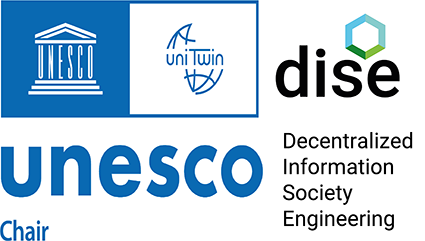2006
Kartseva, Vera; Hulstijn, Joris; Gordijn, Jaap; Tan, Yao-Hua
Modelling Value-based Inter-Organizational Controls in Healthcare Regulations Proceedings Article
In: Suomi, R.; Cabral, R.; Hampe, J. Felix; Heikkila, A.; Jarvelainen, J.; Koskivaara, E. (Ed.): Proceedings of the 6th IFIP conference on e-Commerce, e-Business, and e-Government (I3E'06), pp. 278-291, Springer, 2006, (doi 10.1007/978-0-387-39229-5).
@inproceedings{KartsevaHealthcare2006,
title = {Modelling Value-based Inter-Organizational Controls in Healthcare Regulations},
author = {Vera Kartseva and Joris Hulstijn and Jaap Gordijn and Yao-Hua Tan},
editor = {R. Suomi and R. Cabral and J. Felix Hampe and A. Heikkila and J. Jarvelainen and E. Koskivaara},
url = {https://dise-lab.nl/wp-content/uploads/2021/06/KartsevaHealthcare2006.pdf},
year = {2006},
date = {2006-01-01},
urldate = {2006-01-01},
booktitle = {Proceedings of the 6th IFIP conference on e-Commerce, e-Business, and e-Government (I3E'06)},
volume = {226},
pages = {278-291},
publisher = {Springer},
series = {IFIP International Federation for Information Processing},
abstract = {Products and services are increasingly offered by value webs, rather than by a single enterprise. Typically, value webs need inter-organizational controls to prevent fraudulent behaviour of actors. To design and analyze
controls, we developed the economic value-based methodology e3-control, which so far has been applied mainly in commercial environments, which are regulated by contractual arrangements. In this paper, we use e3control in a
highly regulated environment, which contains public-private partnerships, namely the healthcare sector in The Netherlands. Lessons learned include that the notion of economic reciprocity as present in a commercial setting is not always apparent in highly regulated environments; and that a highly regulated environment requires artefacts like evidence objects, which can be dealt with as if they were value objects.},
note = {doi 10.1007/978-0-387-39229-5},
keywords = {},
pubstate = {published},
tppubtype = {inproceedings}
}
Products and services are increasingly offered by value webs, rather than by a single enterprise. Typically, value webs need inter-organizational controls to prevent fraudulent behaviour of actors. To design and analyze
controls, we developed the economic value-based methodology e3-control, which so far has been applied mainly in commercial environments, which are regulated by contractual arrangements. In this paper, we use e3control in a
highly regulated environment, which contains public-private partnerships, namely the healthcare sector in The Netherlands. Lessons learned include that the notion of economic reciprocity as present in a commercial setting is not always apparent in highly regulated environments; and that a highly regulated environment requires artefacts like evidence objects, which can be dealt with as if they were value objects.
controls, we developed the economic value-based methodology e3-control, which so far has been applied mainly in commercial environments, which are regulated by contractual arrangements. In this paper, we use e3control in a
highly regulated environment, which contains public-private partnerships, namely the healthcare sector in The Netherlands. Lessons learned include that the notion of economic reciprocity as present in a commercial setting is not always apparent in highly regulated environments; and that a highly regulated environment requires artefacts like evidence objects, which can be dealt with as if they were value objects.

